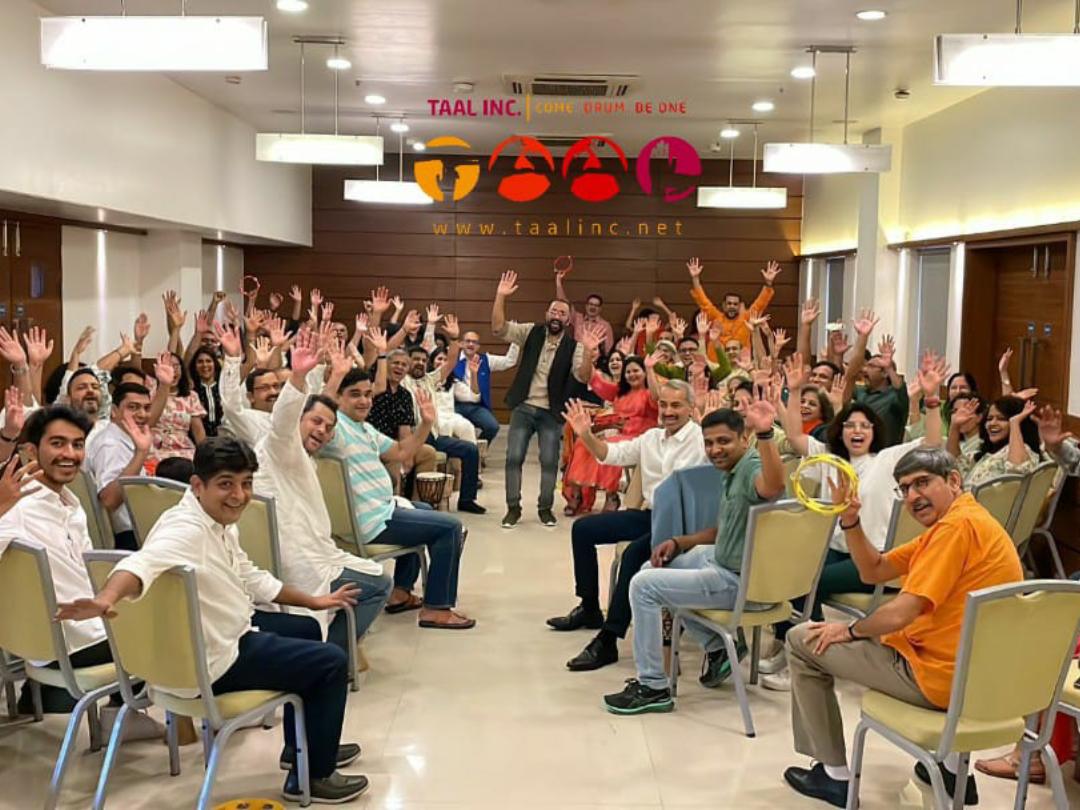Drum circles as we know them today are in no way a recent discovery. So anyone claiming to have invented this concept is lying. Group drumming is as old as time and people. In that, we have seen, heard of or read about the existence of community based group drumming activities, or drumming processions and even shamanic meditation drumming practices from various cultures. What has happened over recent decades is the application of this activity in other settings such as corporates, private celebrations, educational institutions and extrapolation of modern day learnings that we may have lost focus of due to having different priorities.
So, in this way, drum circles in indigenous cultures seem to have been the starting point of drum circles as we know them today. Our community drum circles come closest to group drumming in indigenous cultures where the activity is all about gathering together and drumming. There is no other agenda. In a corporate drum circle or a corporate training drum circle or a corporate team building drum circle there is almost always a particular objective that is to be achieved. The drum circle facilitator is the one responsible for steering the participants toward this (self) realization. Whereas, just like in most indigenous community activities, learning is organic and happens through observation. Learning happens by doing. Similarly, in these culturally specific drumming activities as well there is a lot of learning through observation or modeling. There are a lot of expressions of pent up stress, emotions and energy. There are moments of organic realization. There is a sense of bonding with others in this indigenous community. People develop and nurture their love of rhythm. The list is endless. In this way the significance of drum circles can be seen in indigenous drumming activities.
Existence of drum circles in indigenous cultures: The dhol tasha drumming of the Ganpati festival in Maharashtra, the dhak drummers that accompany the Durga pooja processions, Punjabi dhol drummers that accompany wedding baraats (processions) are just some examples of the numerous types of native drumming processions or indigenous drum circles that exist in our country. Moving over to the African continent (predominantly West Africa), there are many drumming cultures and traditions. Drumming accompanies happenstances of life. There are particular rhythms played for weddings, certain specific rhythms to celebrate a good harvest, certain rhythms for initiation ceremonies and certain rhythms for very specific deities. Playing music for entertainment as a primary outcome (on which one’s livelihood would run) is probably a more recent phenomenon than we think.
When you take part in a community drum circle today, in addition to experiencing the multiple benefits of drum circles, you are tapping into something very ancient and powerful… Something that our ancestors used to regularly participate in. In a corporate drum circle, the jargon of team building, group cohesiveness, leadership and communication are as relevant today as they were hundreds of decades ago. In a wedding drum circle, the core feeling of celebration of love and togetherness is still cherished and valuable. Indigenous drum circles help us bring out these learnings in a very natural and organic way.
This could be one of the reasons that drum circles in general are so attractive to one and all. Even if you’ve never touched a drum before, there is something very magnetic about a group of people drumming that it makes it very difficult to ignore or just stay away. What we suggest is to follow this calling and explore how deep you can go by participating in our community drum circles… By taking up a new hobby and learning the djembe (the traditional way) with Taal Inc. Djembe classes are now help every Sunday in Pune at Baner (4-5pm) and Kalyani Nagar (6-7pm)… If you still feel drawn to this activity, then you can learn how to lead groups using rhythm and become a drum circles facilitator at our annual ‘Find Your Inner Rhythm Course’.
When will Taal Inc. drum with YOU?
Come. Drum. Be One.
Varun Venkit

Varun is the founder and director of Taal Inc.
The visionary behind the motto
Come. Drum. Be One.
To read more about him Click Here

